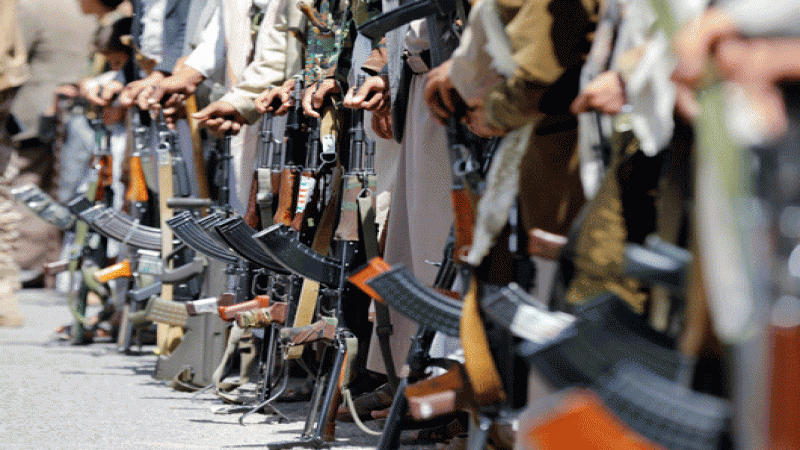
Local Editor
Houthi spokesperson Abdel Qudus al-Shahari has denied reports of a secret nighttime burial for deceased former ex-president Ali Abdullah Saleh, who was killed in fighting earlier this week as he attempted to flee the country's capital of Sana’a.
"His body is still in the morgue because the date of the funeral has yet to be determined," al-Shahari said, speaking to Sputnik Arabic. "This question will be resolved after the conclusion of the investigation…We cannot rush this matter. A criminal case has been opened, an inquiry is being held. Therefore, reports of any funeral are false," he added.
On Wednesday, Arab media reported that the ex-president had been buried without a funeral in the Yemeni capital.
Asked to clarify on conflicting reports regarding Saleh's whereabouts at the time of his death, al-Shahari said that he was killed about 50 km from his home outside the capital as he attempted to flee to the neighboring province of Marib.
The spokesperson was also able to provide more details about Saleh's attempts to escape Houthi forces: "The day before, we surrounded his house, but he secretly left through the back door. His supporters remained in the house. As a result of a shootout at his home, 68 people were killed, including 16 civilians. These were neighbors who didn't manage to hide in time. There were many casualties; therefore, an investigation was started."
Asked to comment on the claim, made by Saleh's son Ahmed, that his father was killed in his home, al-Shahari said that Ahmed is looking to make his father out to be a hero. "But there is objective evidence about what I am saying, for example, Saleh's fingerprints in the car [at the scene where he was killed]. We have collected all the material evidence from the incident. Against conjecture we have hard evidence."
The situation in Sana’a is now calm, the Houthi spokesman stressed. "The political situation in the city will not face any significant changes," the spokesman noted. "There will not be any major rearrangements. Saleh's Party, the General People's Congress, will be allowed to maintain its political position through its support for other forces, including Ansarullah [the Houthis, ed.]. Everyone agrees on the importance of this party's work; therefore, it is necessary to return it its offices, its television channel and the newspaper Yemen today. All this should help preserve the strength of the party."
As for the funds confiscated from Saleh, the spokesperson clarified that the money was returned to the state treasury. "His accounts did not contain large sums. The money had been invested in equipment, weapons, clothing and jewelry…There was not much of it in cash."
Finally, asked about the Houthis' plans vis-à-vis Saudi Arabia, and whether they would accept mediation with the Saudi-led coalition to end the war, the spokesperson said that the answer was yes, but not under the terms currently being offered.
"We would like to find someone who is ready to act as a dove of peace between Yemen and Saudi Arabia. We definitely want to end the war. No intelligent person rejoices in aerial bombardments which kill, frighten children, and destroy homes. We want an end to the war, but not on the terms that Saudi Arabia and the United States have presented. The opinion and interests of the Yemenis must be taken into account."
Background
Former president Ali Abdullah Saleh was killed on December 4 after his convoy was attacked by Houthi forces. The attack occurred soon after the collapse of the Houthi-Saleh alliance last month. In a televised statement two days earlier, the politician urged supporters to join the fight against the Houthis, and said he was open to dialogue with the Saudi-led coalition.
Saudi Arabia, the United Arab Emirates and their allies have engaged in a two-and-a-half year bombing campaign and humanitarian blockade of Yemen in an effort to reinstall resigned President Abd Rabbu Mansour Hadi, who was ousted in an uprising led by the Houthis in early 2015 and subsequently fled to Riyadh.
Saleh's death shortly after turning against the Houthis is seen as a failure of Saudi and UAE efforts to dislodge the Houthi revolutionaries from the country. Despite total air superiority and an arsenal of advanced US weaponry, the coalition has made few gains against the Houthis since starting its campaign in March 2015, losing over a thousand troops, dozens of M1A2 Abrams tanks, and over a dozen planes and helicopters to militia forces armed mostly with old Soviet weaponry delivered to the country in the 1980s.
A January 2017 report by the United Nations has said that over 10,000 civilians have been killed in the conflict, with tens of thousands more wounded. The Saudi-led coalition's ongoing blockade of the Yemen has also left the country's civilian population on starvation rations. The Save the Children non-profit group recently estimated that over 50,000 children are expected to die by the end of 2017 as a result of starvation and disease.
On Wednesday, US President Donald Trump urged Saudi Arabia to lift its blockade against Yemen "immediately" to allow food, water, fuel and medicine to reach civilians amid growing international pressure against Riyadh over the humanitarian crisis in the country.
Source: Sputnik, Edited by Website Team